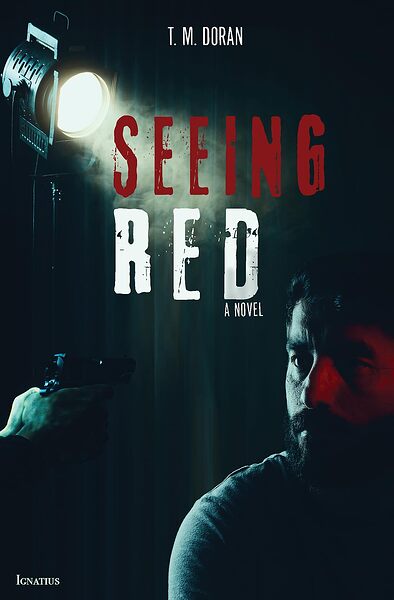Looking for a good read? Here is a recommendation. I have an unusual approach to reviewing books. I review books I feel merit a review. Each review is an opportunity to recommend a book. If I do not think a book is worth reading, I find another book to review. You do not have to agree with everything every author has written (I do not), but the fiction I review is entertaining (and often thought-provoking) and the non-fiction contain ideas worth reading.
Book Review
When the Government Hunts You
Reviewed by Mark Lardas
April, 14, 2024
“Seeing Red: A Novel,” by T. M. Doran, Ignatius Press, March, 2024, 258 pages, $17.95 (Paperback), $17.95 (E-book)
Castro Hume is the Academy Award winning screenwriter of the hit “Stars So Bright.” That was five years ago. Celebrity acclaim and alcohol put his brilliant career in a tailspin. He is a has-been.
“Seeing Red: A Novel,” by T. M. Doran, opens with a newly-sober Hume determined to regain his career and his screenwriting brilliance. He starts by returning to the scene of his first great triumph, Trillium, a rural town built as the set of “Stars So Bright.” Preserved in Michigan’s northern Lower Peninsula, it is a tourist attraction.
The book is set in the near-future, in an alternate, darker version of the world and United States. Resources are scarce. The government is far more controlling. Individuals deemed a burden to the state are issued Extraordinary Designation Cards: Red Cards. They are denied health care, education, and other government benefits. They are encouraged to euthanize themselves. Aiding them is illegal.
Castro discovers Trillium apparently abandoned, occupied by a solitary caretaker. The caretaker explains few fans can afford to visit the isolated site. Shortly thereafter Castro discovers a small colony of Red Cards occupy the set using its isolation to hide. They are on the run, hiding from the Social Security Bureau tracking and hounding them.
Castro has a legal obligation to report their presence. The government tracks all Red Cards. Basic human decency makes Castro reluctant to do so. These people want to live their lives undisturbed, without bothering others.
The SSB forbids this kind of neutrality. If Castro simply ignores the Red Cards, fails to report them, he sets himself against the government. He attempts neutrality anyway, trying to keep his knowledge secret.
It proves impossible. SSB investigators track renegade Red Cards; their suspicions turn toward Castro. He attracts the attention of Commander Philby, a mid-level SSB official convinced Castro has knowledge that can further her career. Castro becomes enmeshed in a high-stakes cat-and-mouse game to escape the SSB’s influence.
“Seeing Red,” like all of Doran’s books is thought provoking. It explores the conflict that occurs when doing the right thing conflicts with obeying the law. It asks what choice should be made when those making and enforcing the law are corrupt and twist the law for their own gain at the expense of basic morality. Gripping yet humorous, it examines a society that denies the sick and disabled their human rights, casting a mirror on our own.
Mark Lardas, an engineer, freelance writer, historian, and model-maker, lives in League City. His website is marklardas.com.
